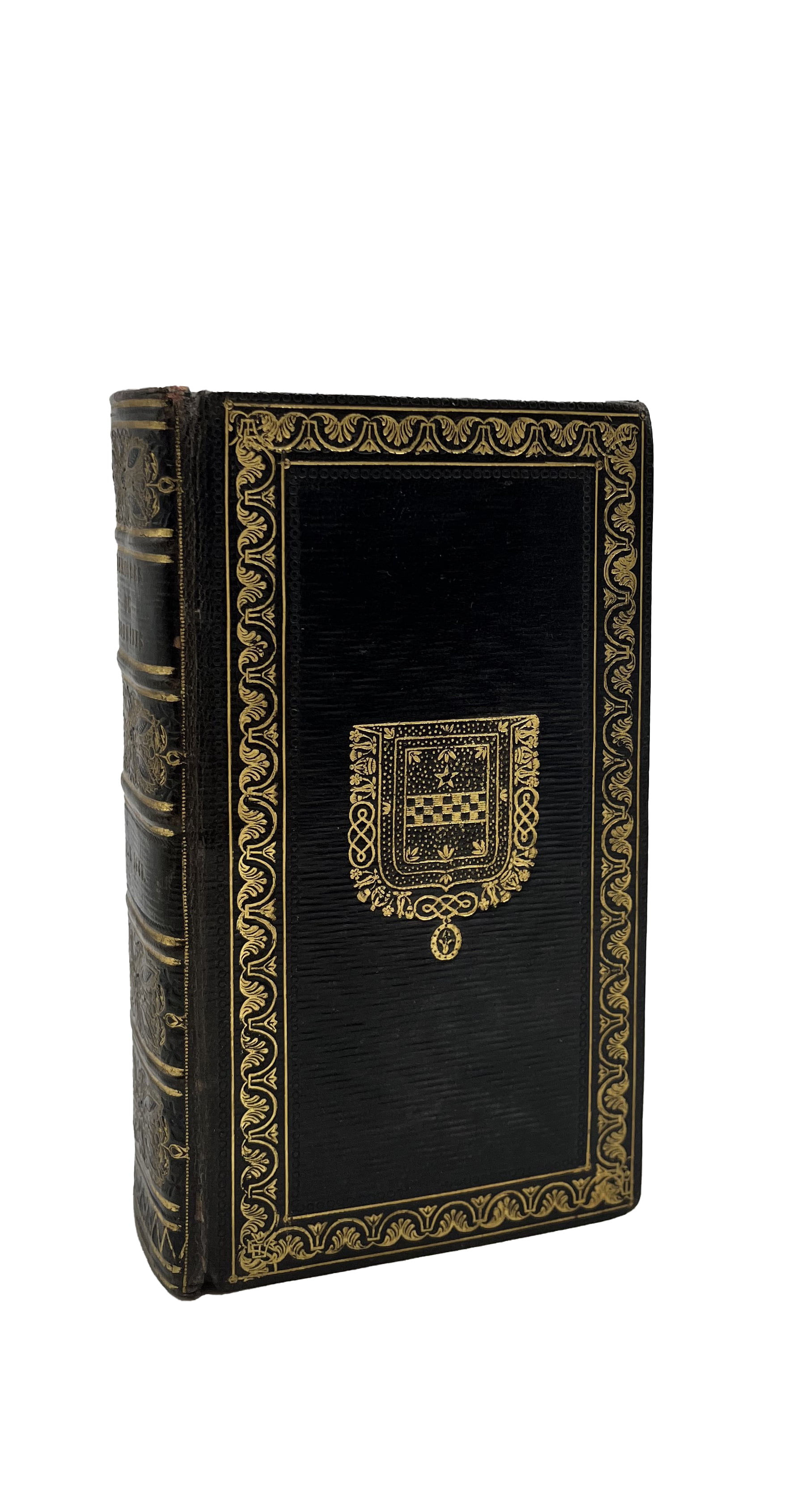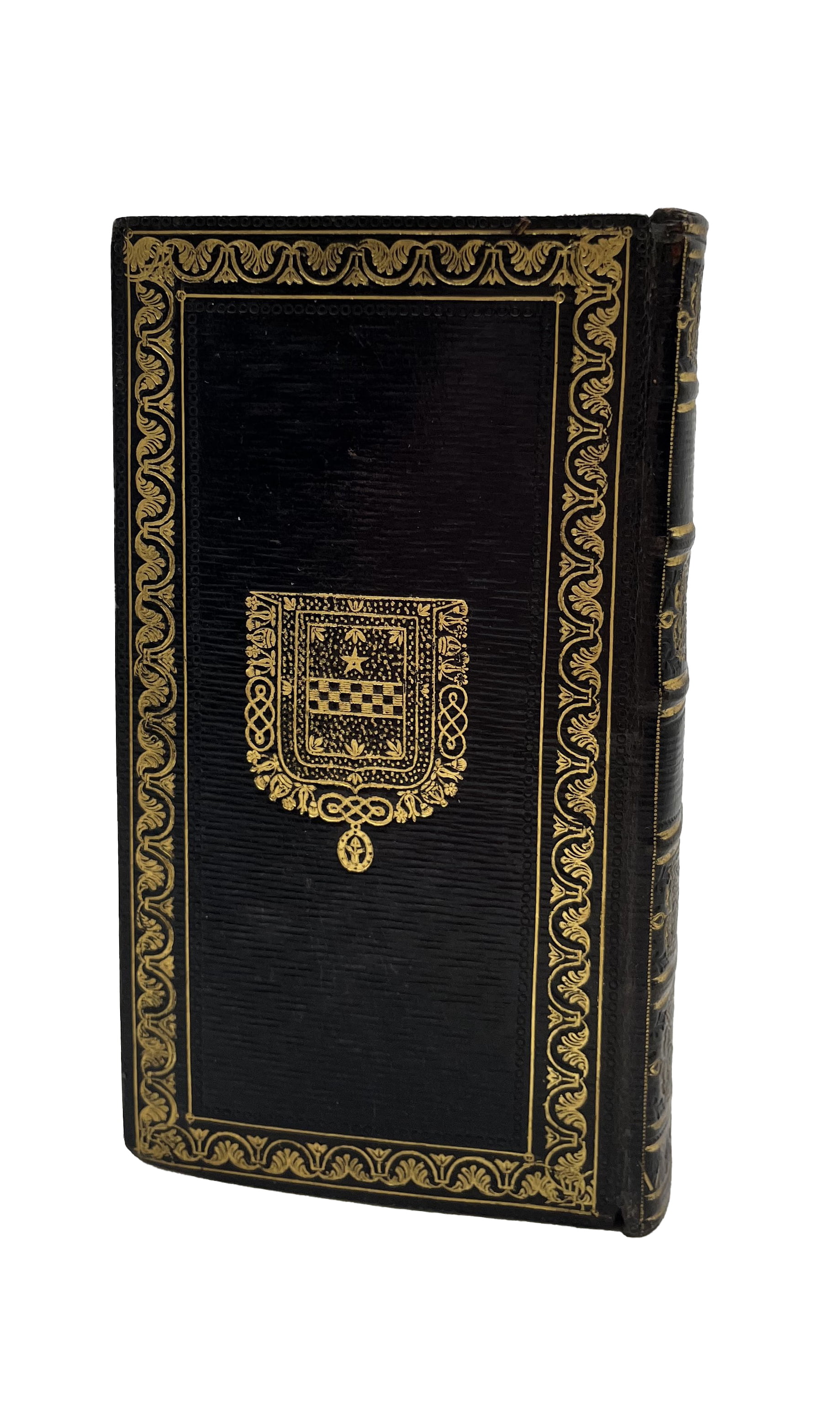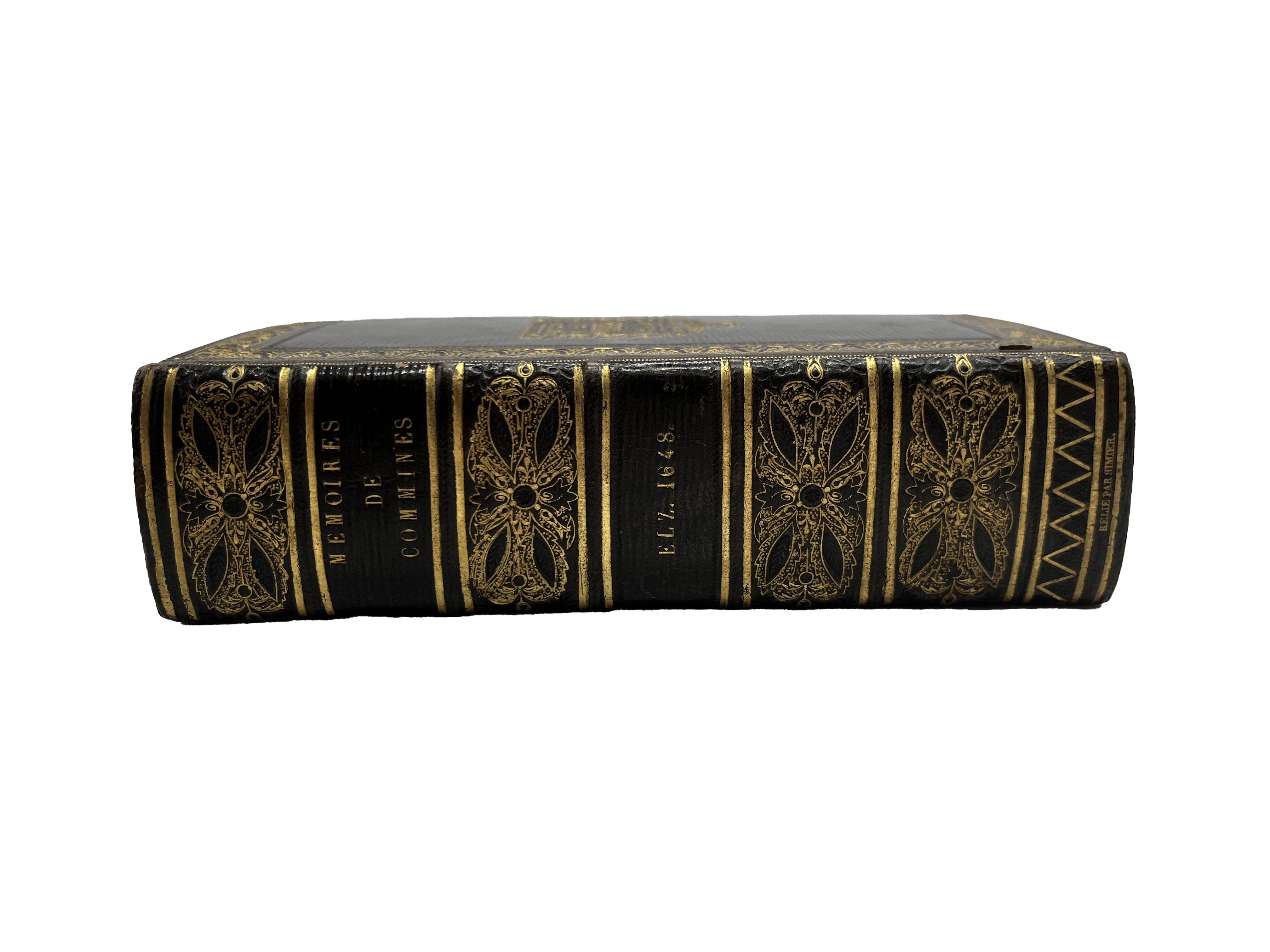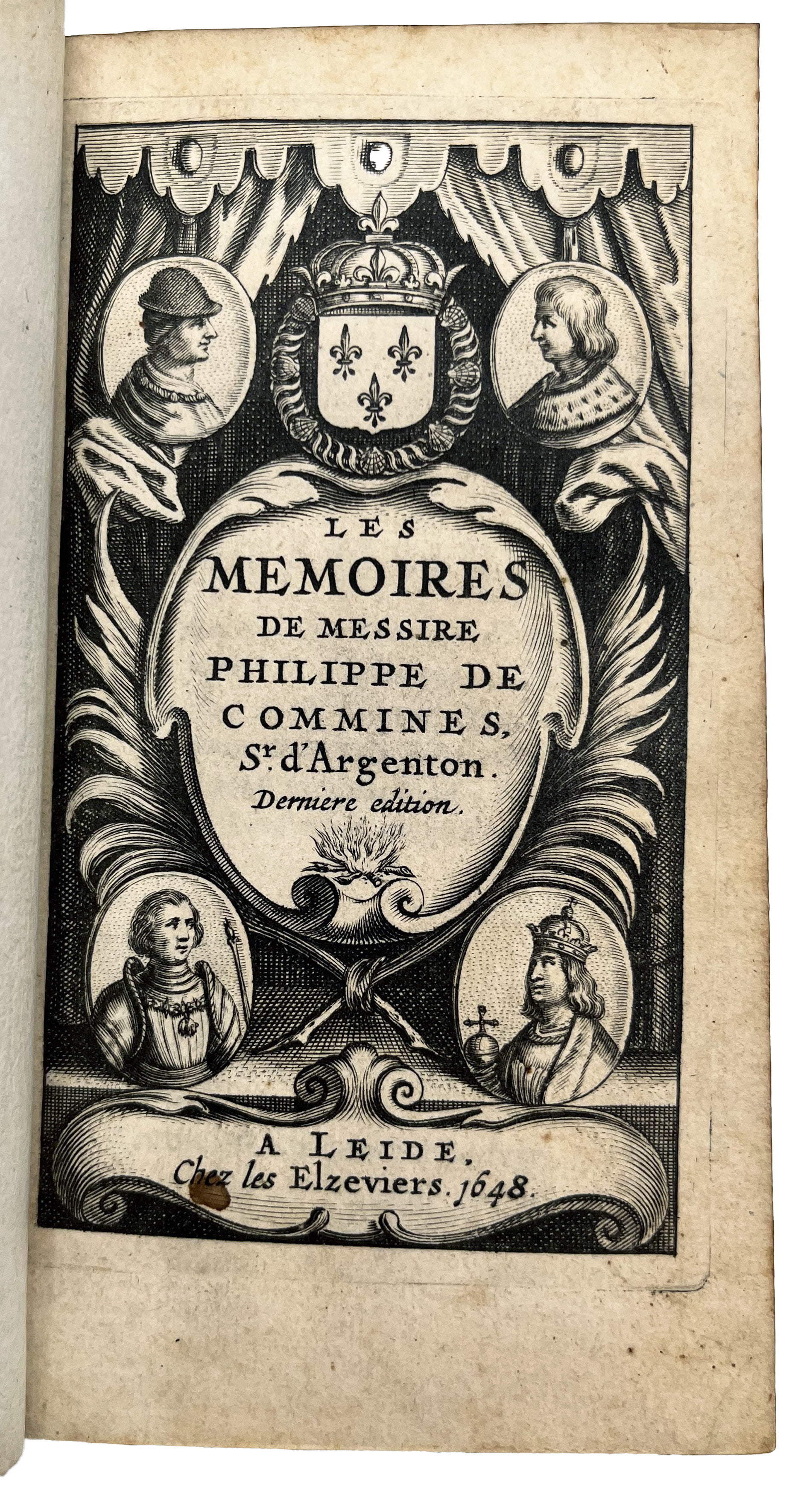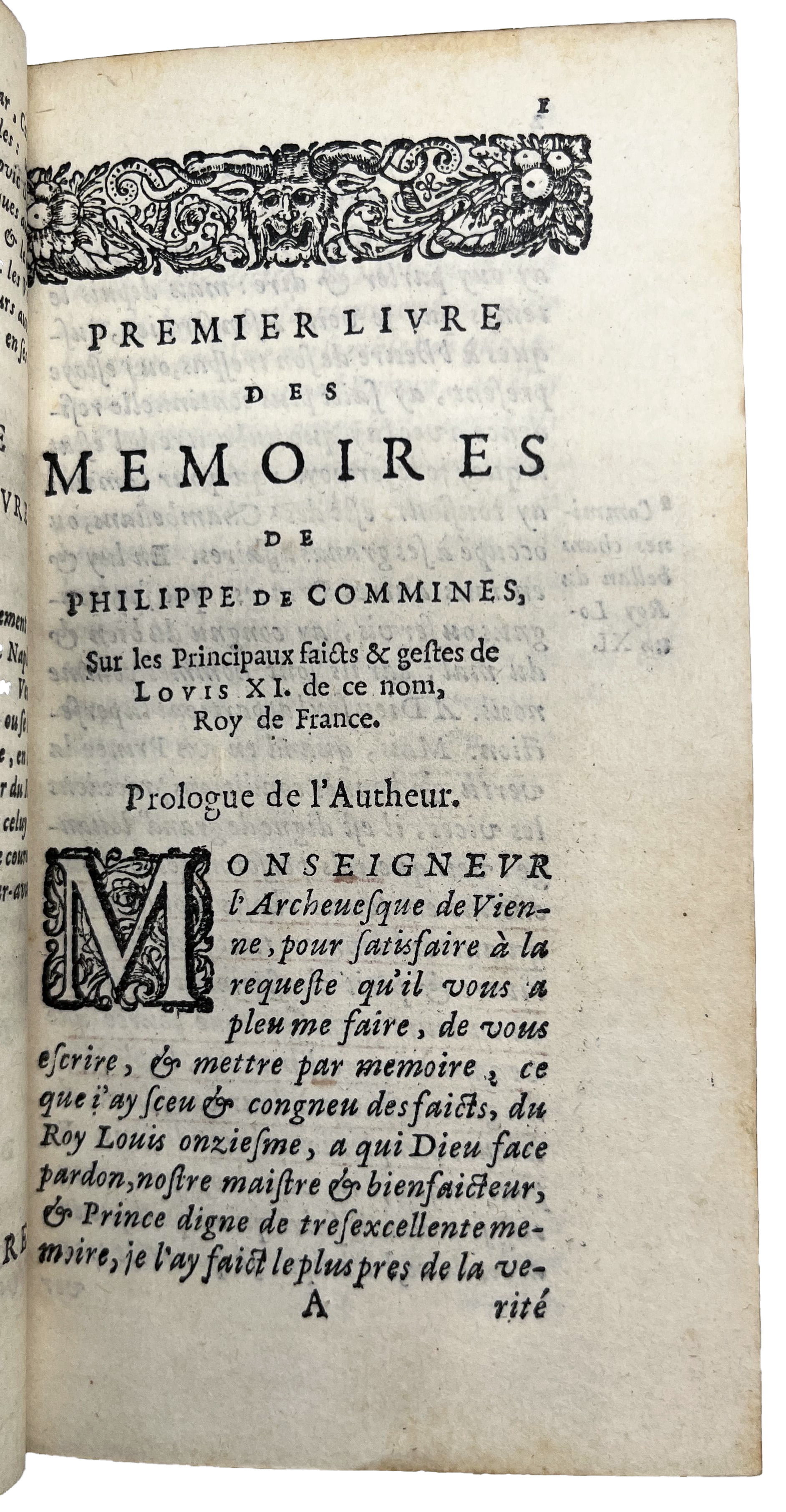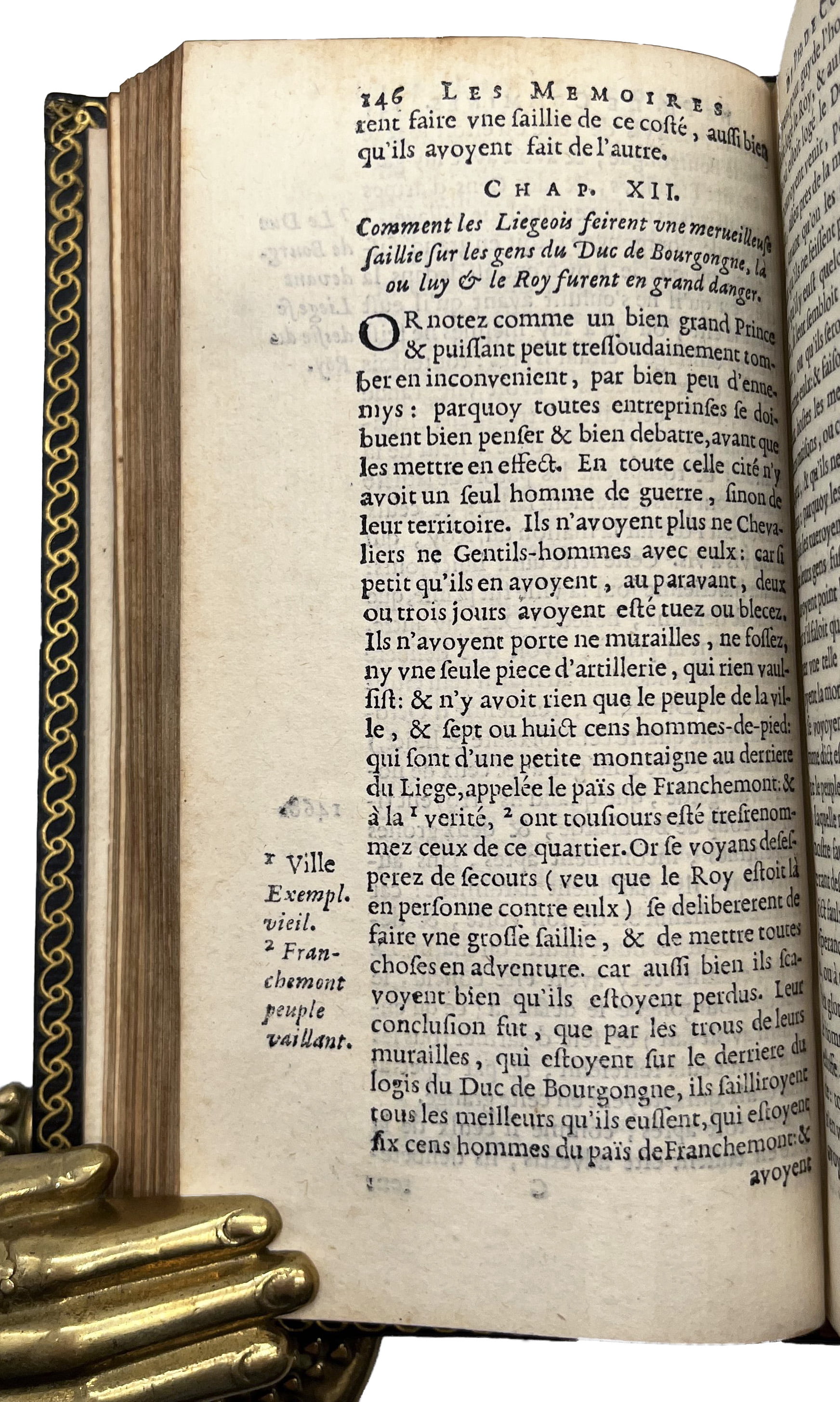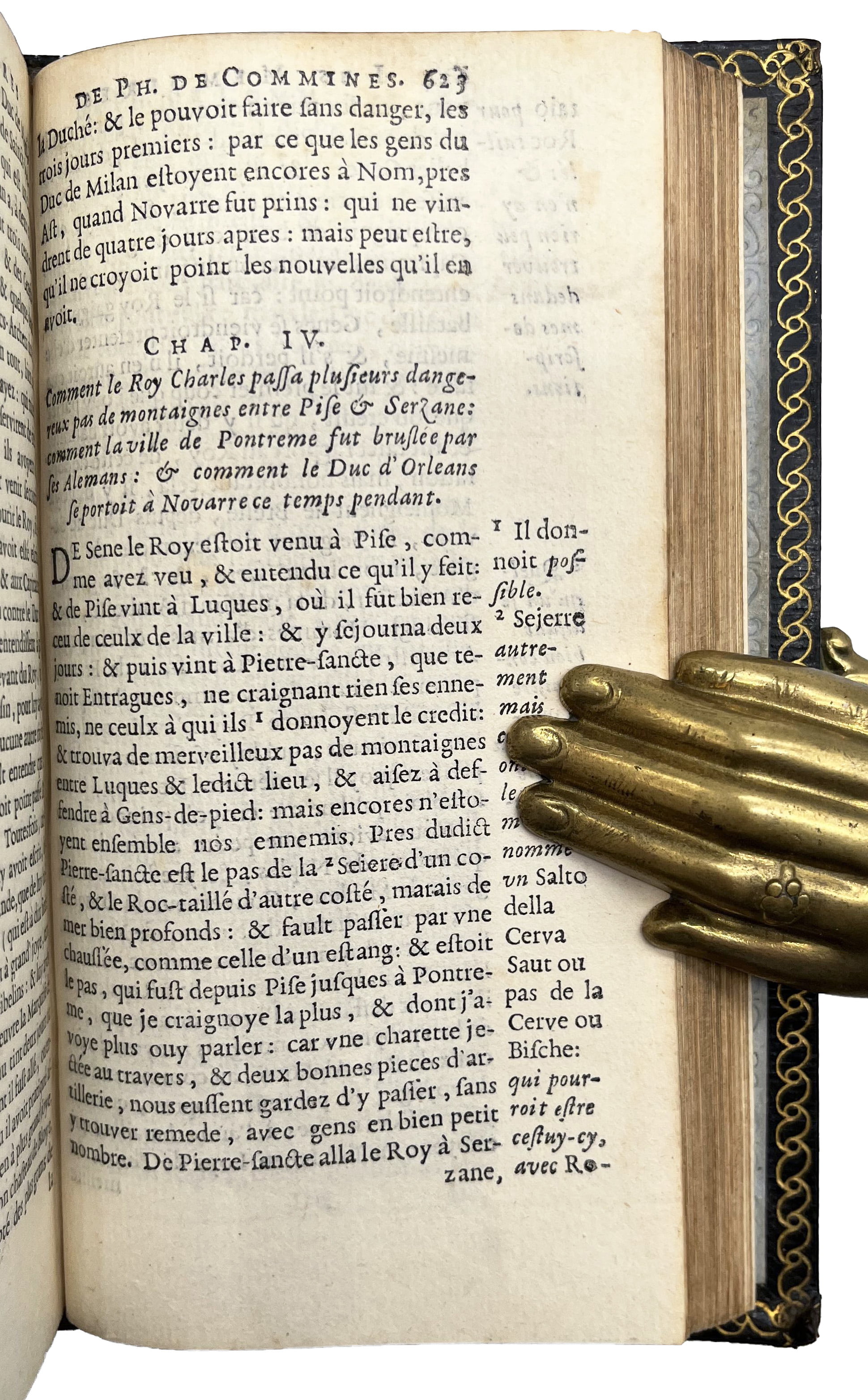COMMINES, Philippe de.
IN STUNNING MOROCCO
Les memoires.
Leiden, chez les Elzeviers, 1648.£2,950.00
12mo. pp. (24), 765, (21); *¹², A-2I¹², 2K⁸. Roman letter some Italic. Engraved title with portraits of Louis XI, Charles VIII, Charles the Bold and Emperor Frederick III in roundels, French arms above, woodcut initials and headpieces, armorial bookplate, and ms. note dated London 1855 on pastedown, of Christopher Sykes (1831-1898), Conservative Member of Parliament from 1865 to 1892, gilt armorial leather label, and ms. note dated June 1894 on pastedown, of Archibald Primrose, 5th Earl of Rosebery (1847-1929), British Prime Minister from 1894 to 1895. A fine copy in early C19th straight grained blue morocco by Simier, covers bordered with gilt roll, within gilt and blind rules, arms of Charles Stuart, 1st Baron Stuart de Rothesay, gilt at centres, spine with gilt ruled raised bands, compartments richly gilt to a floral design on a ground of gilt pointillé, edges gilt ruled, inner dentelles gilt, blue paper doublures with blind rolled border, a.e.g.
A fine copy of the first Elzevir edition, beautifully printed, of these important memoirs by Philippe de Commynes, finely bound for Charles Stuart, 1st Baron Stuart de Rothesay (1779-1845), British ambassador to France and Russia, by Simier the King’s binder in France. Philippe de Commynes has been described as”the first critical and philosophical historian since classical times” Oxford Companion to English Literature. Commynes initially served Charles the Bold at the Burgundian court but was persuaded to defect to the court of Louis XI of France in 1472. He rapidly became one of Louis’ closest advisors. Following Louis’ death Commynes was involved in a rebellion against the crown and was imprisoned for two years. After his release, exiled to his estate at Dreux, he began to write his Memoirs which he finished in 1498, fifteen years after the death of Louis XI, though they were not printed until 1524. The memoirs are considered a historical record of immense importance, largely because of its author’s cynical and forthright attitude to the events and machinations he witnessed. His writings reveal many of the less savoury aspects of the reign of Louis XI, and Commynes recounts them without apology, insisting that the late king’s virtues outweighed his vices. He is regarded as a major primary source for 15th century European history. The ‘Mémoires’ are divided into “books”, the first six of which were written between 1488 and 1494, and relate the course of events from the beginning of Commynes’ career (1464) up to the death of King Louis. The remaining two books were written between 1497 and 1501, and deal with the Italian wars, ending in the death of King Charles VIII of France. Commynes’ scepticism is summed up in his own words: “Car ceux qui gagnent en ont toujours l’honneur” “The honours always go to the victors”. Some have disputed whether his candid phrases disguise a deeper dishonesty. Yet at no time does he attempt to present himself as a hero, even when recounting his military career. His attitude to politics is one of pragmatism, and his ideas are practical and progressive. His reflections on the events he has witnessed are profound by comparison with those of Froissart, who lived a century earlier. His psychological insights into the behaviour of kings are ahead of their time, reminiscent in some ways of the contemporaneous writings of Niccolò Machiavelli. Like Machiavelli, Commynes aims to instruct the reader in statecraft, though from a slightly different viewpoint. In particular, he notes how Louis repeatedly got the better of the English, not by military might, but by political machination.
A fine copy with excellent provenance.
Willems, Les Elzevier, p. 155, n. 634 \\\\\\\\\\\\\\\\\\\\\\\\\\\\\\\"Admirablement exécutée”. Bibliotheca Belgica I:660 ‘compte parmi les plus beaux livres imprimés par les Elzevier’.

